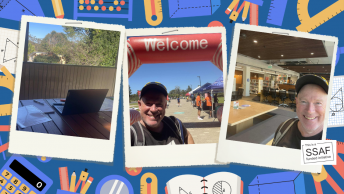This post is over three years old, the information may be outdated.
As a uni student, there are many things we have to prepare for regardless of whether we are an online or campus student. The difference is, being on campus, you will have lecturers and classes to give you a daily routine and a person to guide you when you have an immediate question. As an online student, you do not always have this luxury.
Yes, studying online gives you the flexibility to study when you want. You might even think you’ll be able to study even more than students who go to campus, but this is not so easy, and you still have to be prepared.
Here are five things you can do to make life as an online student easier:
- Read your subject outline.
- Check the assessment dates – you will need to find out when your assessments are due and put it on your calendar or somewhere that you will always see. This way you will have a constant reminder of when you will need to study, and be motivated to stay on track and not be behind on your studies.
- Weekly topics (reading, online sources) – make sure you know what the weekly topics are and estimate how much studying you will need to do so that you can allocate some hours to put in on each one.
- Plan a timetable – even though the weekly topics are always different sizes, make sure you have a schedule or a standard amount of studying hours. This way if you finish a topic quickly you can decide to get ahead so you’re ready for emergencies, or just take a day or two off from studying
- Ask questions – as online students, you won’t be sitting in class and have your questions answered right as you ask them. If there is a question that comes to mind, make a list and ask your questions on Interact2. It is also useful to have a list so that when you read other people’s posts, you can see if others have asked your question and just read the lecturer’s answer to them.
- Use other learning resources and programs – if you difficulty with things such as your grammar, how to write an essay, or getting organised, CSU offers many resources such as the ALLaN workshops, which offer time flexibility. They have multiple sessions of the same topic on different days and times, and you can just choose which one you can join. You can also check out whether the CSU Outreach team is headed somewhere near you.
- Find a great location to study – it is also best to have a place where you know you can always go whenever you feel the need to focus. A park or library near your home may be useful, or your room at home. De-cluttering can be helpful as well in helping you study. If you have no mess on your study table, it is much easier to learn!










